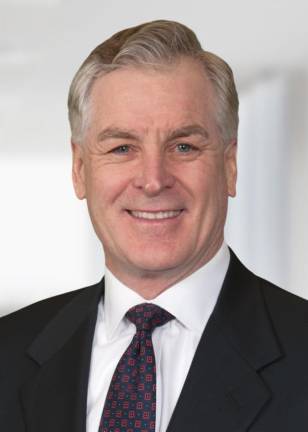New PA 9/11 remembrance law a reminder for all Americans to remain vigilant

For those of us who faced the terrible impact of 9/11, it’s hard to believe that enough time has passed that our college-age students were not alive on that day. It’s critical we ensure that what happened that day is passed down through each generation.
After all, as a nation, we promised to never forget. We swore to never forget.
To that end, it’s important to acknowledge the efforts of state lawmakers in Harrisburg, led by Gov. Josh Shapiro, for establishing an annual moment of silence in our schools on 9/11. It’s my hope that all Pennsylvanians will pause that day, each year, in a moment of silence and quiet reflection, introspection or prayer. It’s also a time when individuals collectively halt their activities to honor and remember the deceased, reflecting on the impacts of their lives on our own.
Special thanks must be given to the legislation’s sponsor, state Rep. Jim Haddock, and the unanimous support of the Pennsylvania General Assembly. It also requires schools to provide programming for students about the events that day at Ground Zero, at the Pentagon and, of course, over the skies of western Pennsylvania when the United Airlines Flight 93 patriots first fought the terrorists, forcing their plane down into the green fields of Shanksville.
This new law rightly and solemnly commemorates the terrible loss of 2,996 American lives that day. Of those, nearly 400 were police officers, firefighters, and EMTs. Children were killed that day flying on airplanes hijacked by terrorists — the youngest was just 2 years old.
The work in identifying the victims continues. In January 2024, more than two decades after the attacks, the remains of a victim were identified in New York. To date, more than 1,100 of the World Trade Center victims – about 40% — remain unidentified.
The aftermath created thousands of more victims who responded to the exhausting search and rescue effort. Nearly as many firefighters have died after 9/11 than those who perished in the moments after the terrorist attacks occurred. Currently, the World Trade Center Health Registry includes over 70,000 people who are suffering from physical and mental health issues.
Ideally, school curriculums will help students understand the events leading up to 9/11, and then look at why the U.S. responded the way it did — for example, with legislation like the PATRIOT Act. Students should learn that America still has military and intelligence assets stationed in the Middle East and around the world as a direct result of the global war on terror. If young people graduate high school and don’t understand how and why 9/11 occurred, we’re not doing a very good job of preparing them as citizens to be our future leaders.
Let me also suggest that the 9/11 anniversary should stand as a day when we rededicate ourselves to staying on guard to prevent another terrible attack on our homeland. It is the civic responsibility on the part of all American citizens to support a strong counterterrorism effort every day. Regrettably, polling shows more and more Americans do not see terrorism as a major threat to our nation, but the threats we face today are as real as those we woke up to on 9/11. Regardless of where you stand on the southern border, the evidence is clear that terrorists are attempting to use it as an entry point.
This comes at a time when only 52% of Americans consider terrorism a critical threat, the lowest levels since before 9/11, according to recent public opinion survey by the Chicago Council on Global Affairs. This is down dramatically from 90% in 2002, one year removed from the attacks of 9/11.
We must teach our children — and remind each other — that homeland security is not merely a buzzword. It represents a profound and challenging responsibility American citizens and all levels of government must take seriously.
Former National Security Advisor Gen. Colin Powell said, “You can be sure the American spirit will prevail over this tragedy.” He was right. We have. But we must stand by our commitment made 23 years ago when we promised those who tragically died, and their loved ones, that we would never forget what happened on that horrific day.
Mark Schweiker
44th governor of Pennsylvania